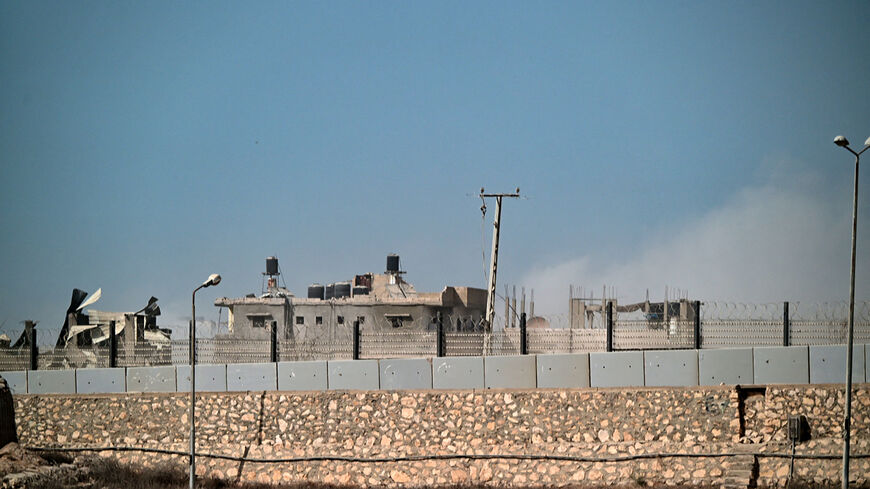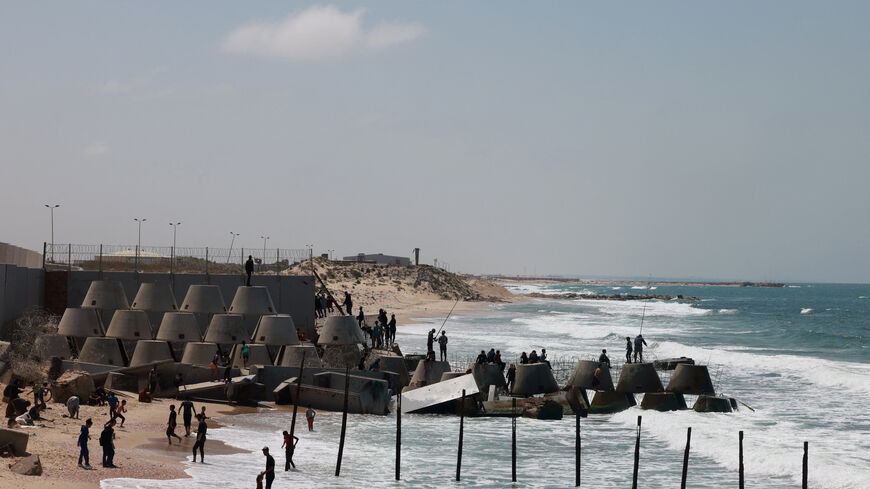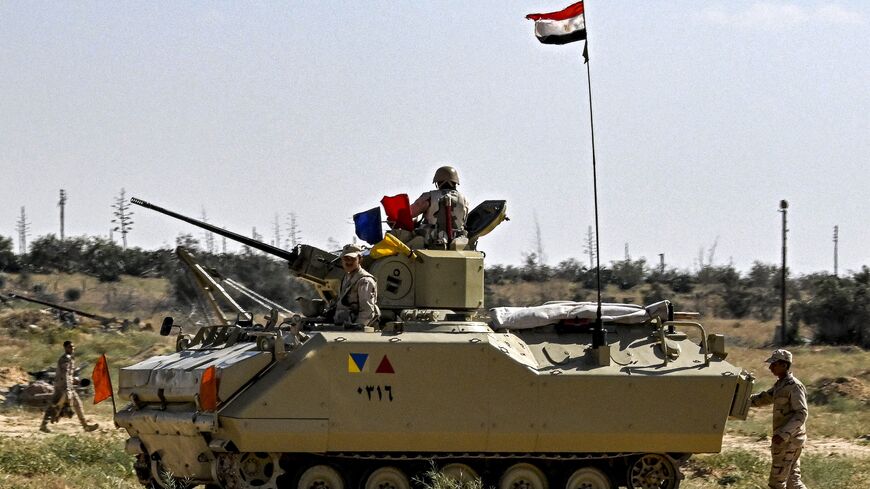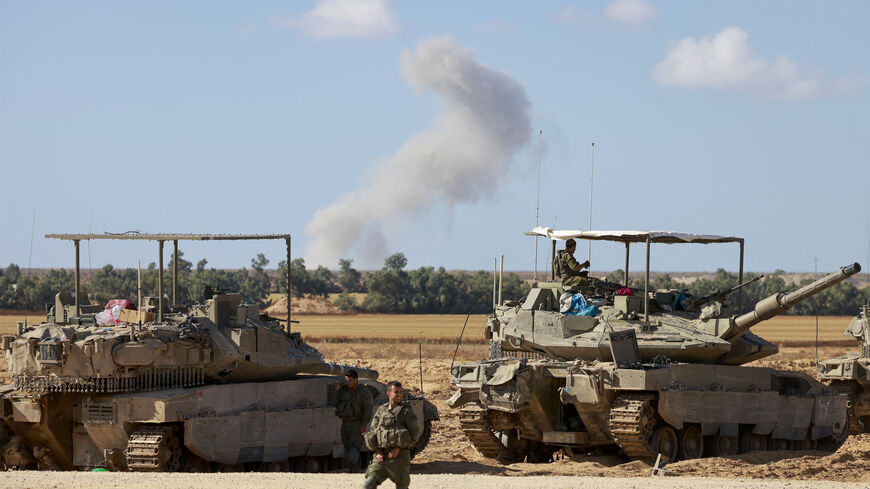Palestinian Fatah official slams Israel’s Rafah push but hopeful on Gaza deal
Abbas Zaki told Al-Monitor he’s hopeful the strong international response will leave Israel with no choice but to withdraw from the Rafah crossing and potentially accept a deal.
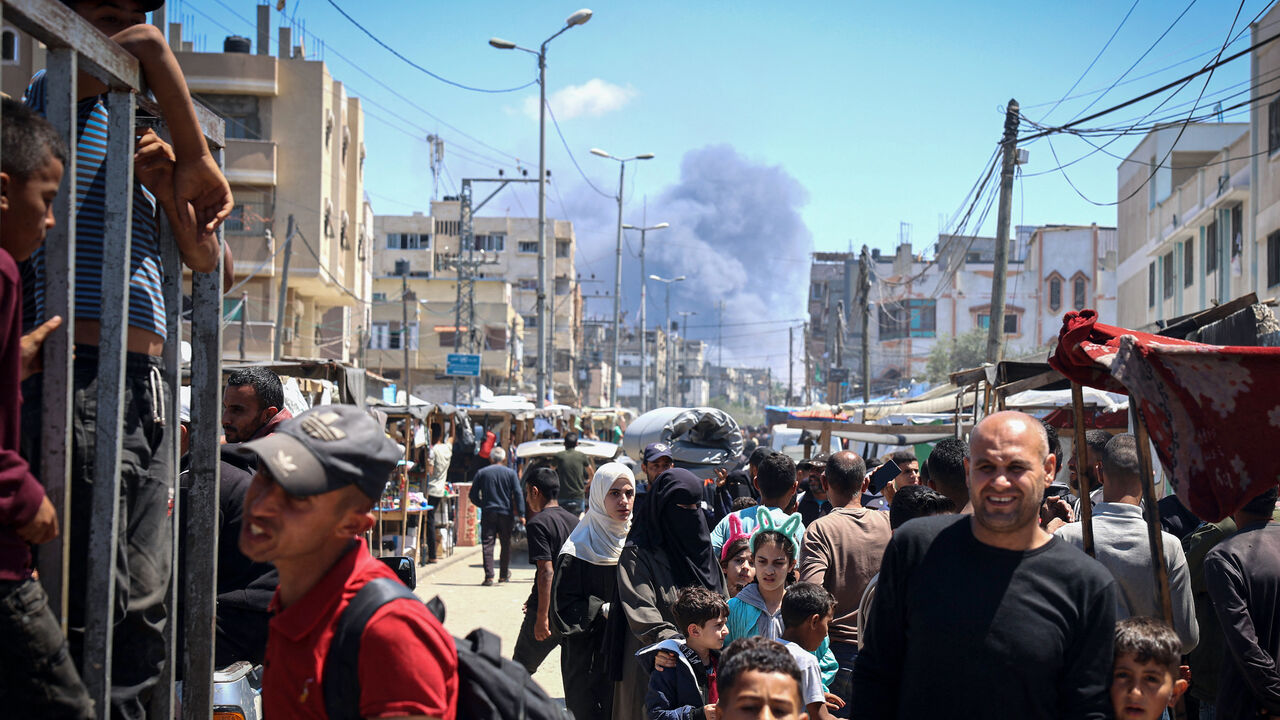
This is an excerpt from the Palestine Briefing, Al-Monitor's weekly newsletter covering the big stories of the week in Palestine. To get Palestine Briefing in your inbox, sign up here.
Just after reports emerged Monday that Hamas had agreed to a Qatari-Egyptian proposal for a cease-fire deal in Gaza, the Israeli army carried out strikes in the eastern part of Rafah before taking control of the Palestinian side of the city’s border crossing with Egypt. The Palestinian leadership in Ramallah was quick to voice strong criticism of the Israeli military's actions, saying that the crossing takeover could exacerbate the dire humanitarian situation in Rafah.
Yet a top Palestinian official told Al-Monitor he’s hopeful the strong international response will leave Israel with no choice but to withdraw from the crossing and potentially accept a deal. Israel's prime minister, Benjamin Netanyahu, said Monday the current terms in Hamas' response are different from what Israel had agreed to.
Abbas Zaki, the commissioner for Arab and China relations in the Fatah movement, told Al-Monitor that Israel's takeover of the crossing has "blown up US commitments to Egypt and Qatar."
Zaki, who in his role oversees the PA’s ties with Egypt, argued that Israel “will not be able to continue in its path after this action," meaning that it will pull back from the Philadelphi Corridor connecting Egypt to Gaza.
Hamas’ approval of the Egyptian-Qatari proposal, which CIA Director Bill Burns was also involved in negotiating, caught Israelis off guard on Monday. For the Palestinians, the quick Israeli incursion to east Rafah, including the takeover of the Palestinian side of the crossing terminal, caught many by surprise.
Photos of the Israeli flag raised on the grounds of the Palestinian terminal with the Palestinian flag thrown on the ground below have gone viral on social media and created a stir in Ramallah.
Israeli forces raise 🇮🇱 flag at the Rafah crossing in Gaza.
— Visegrád 24 (@visegrad24) May 7, 2024
They took control of Gaza side of Rafah border as cease-fire hangs in balance.
pic.twitter.com/6fz2m9MSh7
Presidential spokesperson Nabil Abu Rudeineh didn’t mince his words when he commented on the incident.
"The Rafah land crossing and the rest of the territory of the Gaza Strip are occupied Palestinian land in accordance with international legitimacy resolutions, but the occupation, supported by America with weapons, money and political cover, insists on continuing to defy international legitimacy because the American veto will protect it,” Abu Rudeineh said.
Abu Rudeineh warned of the dangers of Israel’s attack on the city of Rafah, which threatens to compound the suffering of more than one million civilians. The attack, he added, “will prevent the flow of relief aid to our people in the Gaza Strip, which portends an unprecedented humanitarian catastrophe."
Egypt had previously warned Israel that any actions to take control of the border could jeopardize bilateral ties.
“Any Israeli move to occupy the Philadelphi Corridor [where the Rafah crossing is located] will lead to a serious threat to Egyptian-Israeli relations,” Diaa Rashwan, the head of Egypt’s State Information Service, said in February.
Yet Zaki sounded hopeful that Wednesday's high-level meeting in Cairo — including representatives from Egypt, Qatar and Saudi Arabia, along with the CIA chief — will put an end to the Israeli action and lead to a withdrawal from the Rafah crossing, and potentially a deal. Hamas and Israel have delegations currently in Cairo to continue talks on the deal. Zaki said he believes that Israel “will not be able to withstand all the pressure that is being put on it from all sides.”
As a member of Fatah’s Central Committee, Zaki also had strong words for the Palestinian leadership’s management of the situation. “The Palestinian leadership now is a single person, Abu Mazen [Mahmoud Abbas], who is leading alone. There is no war council or a joint leadership," and Abbas is making unilateral decisions.



